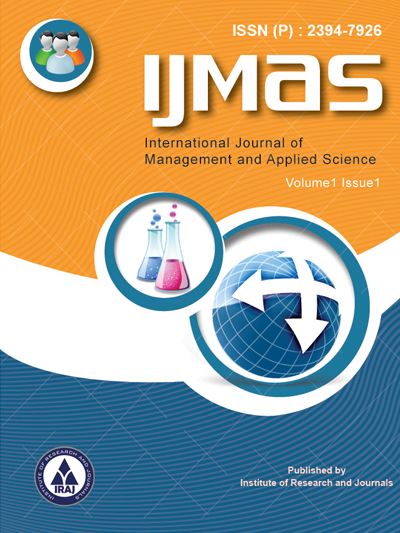Publish In |
International Journal of Management and Applied Science (IJMAS)-IJMAS |
 Journal Home Volume Issue |
||||||||
Issue |
Volume-5,Issue-5 ( May, 2019 ) | |||||||||
Paper Title |
Assessment for Learning in Classroom: How does it Work? | |||||||||
Author Name |
Natcha Mahapoonyanont | |||||||||
Affilition |
Assistant Professor, Thaksin University, Songkhla Campus, Thailand | |||||||||
Pages |
60-65 | |||||||||
Abstract |
In raising the educational standards and quality, highly important variables in achieving successful educational reform are teacher quality, quality development of new age teachers who facilitate learning in students as a profession with value and ability to attract good and talented people who love teaching to become teachers, thereby necessitating the importance of driving for qualitative production for society. One study that triggered interest in raising students’ learning achievements by using measurement and assessment concepts in classes among academic experts throughout the world is the “Inside the Black Box: Raising Standards through Classroom Assessment” study by Black and Wiliam in 1998 who found formative assessments to have an effect size of 0.40 – 0.70 on capabilities and learning achievement while also finding formative assessment to have the greatest effect size among variables related to educational development. Many academics in the field of educational evaluation and assessment are currently showing greater interest and support for students, education guides and school executives to implement “assessment for learning” concepts and methods in classes rather than emphasizing only “assessment of learning” in line with the specifications of central education agencies. To improve education outcomes and increase the impact of assessment results, teachers and school leaders need both a theoretical and a practical understanding of the learning and assessment processes. This research finding will recommend how the concept of assessment for learning could be working in classroom. Keywords - Assessment For Learning, Professional Development, Teacher, Classroom. | |||||||||
| View Paper | ||||||||||